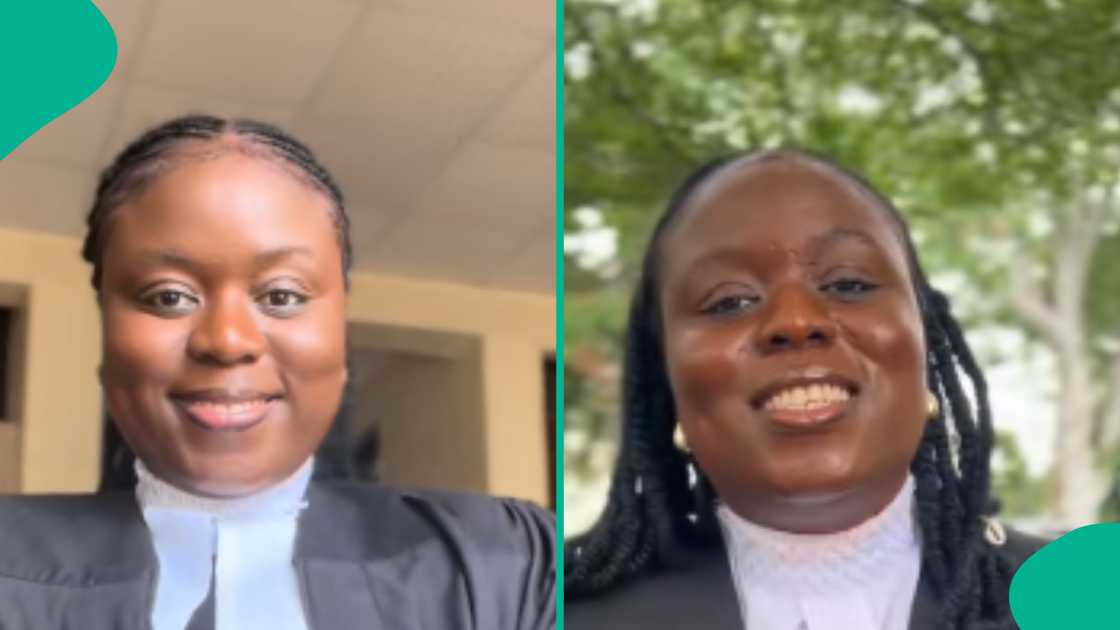Lawyer Shares What Happens When Someone Dies While Owing Debt
- A Nigerian lady who is a trained lawyer has shared insight on what happens if a debtor dies before paying their debt
- According to the lawyer, that an individual is dead does not mean the debts they were owing will not be paid
- She said if someone dies without paying the debts they are owing, the person's estate will be used to pay the debt
A Nigerian lady trained as a lawyer shared a post on how debts are repaid when a debtor dies.
The lady shared what happens after an individual suddenly dies without repaying the debts they were owing.

Source: TikTok
According to the post shared by Celebrity Lawyer, that someone is dead does not mean the debts they owed will not be repaid.
She said death does not absolve one of the responsibility of repaying debts.
She noted that the deceased person's estate would be used to repay the debts they owed while alive.
Her words:
“A “DEAD MAN” can owe. If you die while owing, your estate (everything you leave behind) will be used to settle the debt.”
What the law says on debt payment
Her views were supported by an article published online by AAA Chambers concerning the topic.
It says:
"When a person dies he/she leaves behind what is called an “estate”. An estate, according to Black’s Law Dictionary, is “the property that one leaves after death; the collective assets and liabilities of a dead person”.
"An estate includes a person’s bank accounts, landed properties, cars, etc. Simply put, it is anything the deceased person owns at the time of his death. Hence, in order to recover a deceased person’s debt, a creditor ought to take steps in getting its money from the estate of the deceased.
"A creditor can go after the beneficiaries of a deceased debtor’s estate in order to recover the outstanding indebtedness of the deceased debtor. However, a creditor can recover from a beneficiary (of a deceased debtor’s estate) only to the extent the beneficiary benefited from the deceased’s estate."

Read also
Court freezes all Kizz Daniel's personal and business accounts, directs him to pay over N350m
According to the article, this move is supported by section 33 of the Administration of Estates Law of Lagos state. It says:
"Section 33 of the Administration of Estates Law of Lagos State provides that all real and personal estate of a deceased person are assets for the payment of his debts and liabilities."
What happens if deceased person has no assests
Meanwhile, Celebrity Lawyer told Legit.ng that if the deceased person left no assets, the debt cannot be recovered.
She said:
"When a person dies, their debts are settled from their estate that is, the property and money they leave behind. If the deceased left no assets, the debt cannot be recovered. Relatives are not personally liable unless they signed as guarantors or co-borrowers."

Source: TikTok
See the post below:
Lawyer speaks on suing adulterous partner
In a related story, Legit.ng reported that a Nigerian lawyer said a person can claim damages in court if their spouse cheats in marriage.
According to the lady, if a person files for a divorce because their partner committed adultery, they can claim damages as well.

Read also
"At 19 I borrowed N19M from my uncle to go into diesel business": Mr Eazi shares risky move, outcome
However, the lawyer, identified as Barrister Oge, said there are certain conditions to be fulfilled before such damages can be granted.
She said:
"Section 31(3) of the MCA is clear that damages shall not be awarded when an act of adultery upon which the petitioner relies was committed more than three years before the filing of the petition. So if you want damages, file within the stipulated time."
Proofreading by Funmilayo Aremu, copy editor at Legit.ng.
Source: Legit.ng


